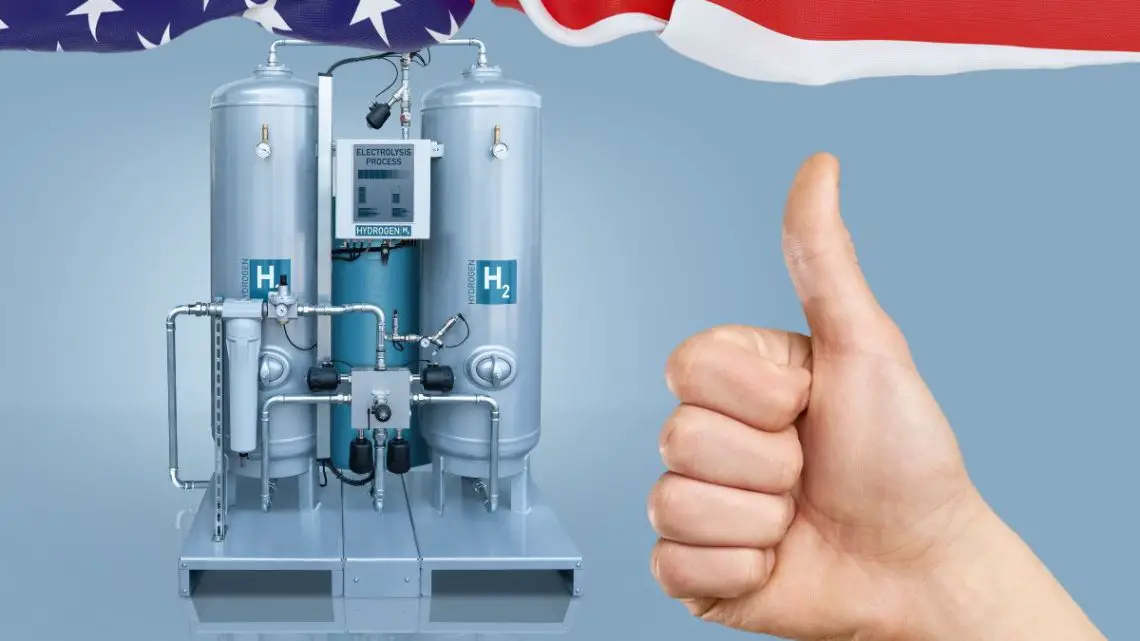
Electrolyzers for water electrolysis are playing a growing role in American hydrogen fuel
June 13, 2024US developers are increasingly using this method of producing green H2 for decarbonization
Developers across the United States are creating and implementing plans for broadening green hydrogen production using methods such as water electrolysis powered by renewable energy.
The goal is to reduce reliance on fossil fuel
By choosing water electrolysis for hydrogen production, other hydrocarbon-based strategies reliant on fossil fuels will become less necessary in years to come.
Planned installations for electrolyzers using electricity to split H2O molecules have the potential to broaden US capacity from its current 116 megawatts (MW) to a far more meaningful 4,524 MW, according to US Department of Energy Hydrogen Program Record data.
If all those planned projects end up being built, it would mean that the US hydrogen fuel production using water electrolysis will reach around 0.72 million metric tons (MMmt) per year. In comparison, the current annual H2 production using fossil fuel is about 10 MMmt.
Incentives for hydrogen through water electrolysis
Projects based on electrolyzers focused on producing clean H2 and that are under a certain low-carbon intensity bar have the potential for receiving tax credits if construction begins by 2033.

Still, as much as electrolyzers are playing a rapidly increasing role in H2 production in the United States and there are big plans for growing that further, fossil fuel remains by far the most common source of energy behind the production of this zero-carbon fuel.
This is the case now, and will remain the case for years to come, as methods relying on energy sources such as natural gas are already in heavy use. Unfortunately, not only do those methods produce greenhouse gas emissions, but those emissions are also left unabated. This means that while the hydrogen fuel itself can be used without generating any emissions beyond water vapor and a bit of heat, producing it remains a polluting effort.
Renewable hydrogen through water electrolysis
 It is for this reason, among others, that water electrolysis – particularly in forms powered by electricity generated by renewable energy such as solar and wind – have become such a focus in the decarbonization of energy in the United States and around the world.
It is for this reason, among others, that water electrolysis – particularly in forms powered by electricity generated by renewable energy such as solar and wind – have become such a focus in the decarbonization of energy in the United States and around the world.



 With over 15 years of reporting hydrogen news, we are your premier source for the latest updates and insights in hydrogen and renewable energy.
With over 15 years of reporting hydrogen news, we are your premier source for the latest updates and insights in hydrogen and renewable energy.